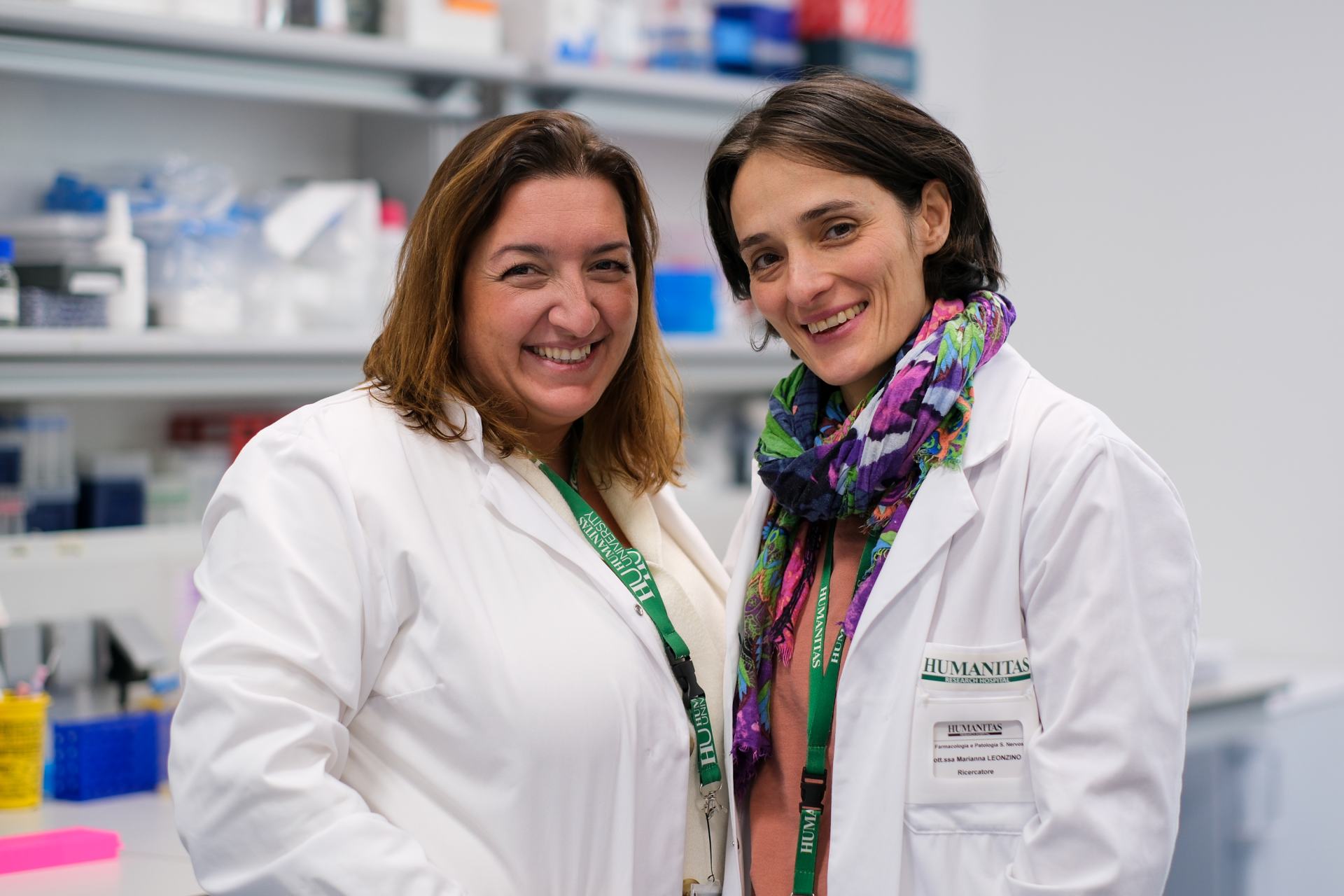Two Humanitas scientists among Telethon Grant winners for rare genetic disease research

Fondazione Telethon has announced the winners of the fourth round of its multi-round grant program, which supports cutting-edge research on rare genetic diseases. Among the awarded projects, which received a total of over €6.35 million across Italy, are those led by two Humanitas researchers: Simona Lodato, Associate Professor at Humanitas University and Group Leader of the Developmental Neurobiology Lab, and Marianna Leonzino, Researcher at the CNR Institute of Neuroscience based in Humanitas, within the Neuroscience Research Program led by Prof. Matteoli.
“We are deeply honored to receive this multi-round grant from Fondazione Telethon. This funding will allow us to advance our respective projects and contribute to a deeper understanding of these neurological diseases. By uncovering their underlying mechanisms, we hope to bring the scientific community closer to developing novel, effective treatments for individuals living with rare genetic disorders,” say Simona Lodato and Marianna Leonzino.
Uncovering the role of the CXCR4 gene in brain development
Lodato’s project focuses on WHIM syndrome (“Warts, Hypogammaglobulinemia, Immunodeficiency, Myelokathexis”), a rare genetic disorder that causes severe recurrent infections, neurobehavioral symptoms, and structural brain abnormalities. Lodato’s team has discovered that these neurological symptoms are not merely secondary to immune dysfunction but arise directly from mutations in the CXCR4 gene, a critical regulator of cerebellar development.
Her research aims to elucidate how these mutations disrupt the migration and function of neurons during early brain development, leading to the observed abnormalities. Furthermore, the project will assess the potential of CXCR4 antagonist drugs—already in clinical trials for the immune-related aspects of WHIM syndrome—to correct or mitigate these brain defects.
Mitochondrial removal dysfunction in neurodevelopmental disorders
Marianna Leonzino is leading an innovative study on the VPS13D gene, whose mutations are linked to a complex neurological movement disorder with highly variable symptoms.
The research focuses on a critical cellular process called mitophagy, which ensures the proper removal of damaged mitochondria. Dysfunctional mitophagy is a hallmark of many neurodegenerative and neurodevelopmental disorders. Using advanced cellular models that mimic patient-specific mutations, Leonzino’s team aims to unravel how VPS13D mutations lead to neuronal dysfunction and to identify novel therapeutic targets to restore mitochondrial health and improve neuronal function.
The awarding of these projects underscores the pivotal role of Fondazione Telethon in supporting leading Italian scientists and highlights Humanitas’ commitment to fostering innovative and impactful research in neuroscience and rare diseases. Together, Lodato and Leonzino’s work exemplifies how fundamental research can lay the groundwork for more personalized therapies, offering hope to patients affected by rare and often debilitating conditions.